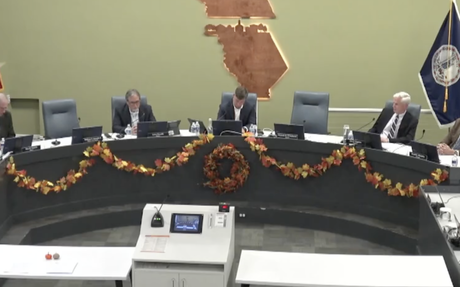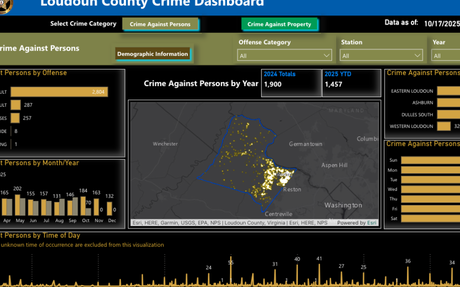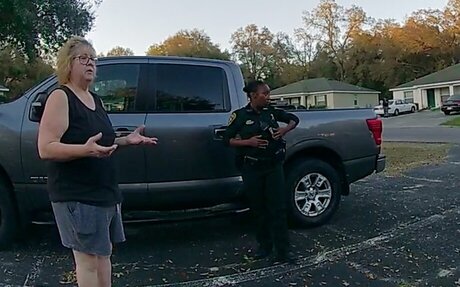|
|
1 0 . 2 0 . 2 5
All Access
5 items
|
|
|

|
Local
In a recent podcast interview, Richmond Mayor Danny Avula was asked why the city hasn’t settled a lawsuit against the government filed by Connie Clay, the city’s former Freedom of Information Act officer. “If what is being publicly reported was actually the truth, then know that this would be solved a long time ago,” Avula told Rich Meagher, the host of VPM’s RVA’s Got Issues podcast. It’s not fully clear what the mayor meant by that remark, but it didn’t sit well with Clay. “Taxpayers have spent too much money for the mayor to not know what’s going on in this very high-profile and expensive lawsuit,” Clay said in an Oct. 8 interview with The Richmonder.
|
|
|

|
Local
Calling it an “intimidation action,” Deshundra Jefferson, chair of the Prince William County Board of Supervisors, has asked a federal judge to dismiss a lawsuit filed by the developer behind a controversial plan to allow five data centers behind the Four Seasons retirement community in Dumfries. Atlantic Funding’s LLC’s lawsuit “seeks to bully Jefferson, chill speech, and silence opposition —with the end goal of profiting from a lucrative data center development,” Jefferson’s court filing said. Atlantic Funding, which owns about 61 acres behind Four Seasons and wants to develop it for data centers, alleged that Jefferson had spread misinformation to engender opposition to the project at two public town halls earlier this year. “Because this is a political issue, Atlantic Funding has affirmatively sought to marshal public support — including from the Four Seasons community,” Jefferson’s filing said. “In turn, citizens have a right to oppose or support this or any other proposed development, and to communicate their views on this or any other zoning issue to their elected Board members.”
|
|
|

|
Local
Warrenton Town Council has unanimously approved a resolution allowing the Commission on Open and Transparent Government to issue subpoenas to third parties. The council also voted Tuesday to hold a special meeting to discuss potentially replacing Town Attorney Chap Petersen. The transparency commission, created in January to review Warrenton’s land-use processes, earlier this month authorized Petersen to pursue subpoenas for records related to three major development approvals, including the Amazon data center, Warrenton Village Center and the Arrington Voluntary Settlement Agreement pending council support. Associate Town Attorney Patrick Corish, standing in for Petersen, who was absent at Tuesday’s meeting, said the resolution empowers the commission to compel third parties to appear before the commission or council and produce documents. “If that party does not, we can file subpoenas by court order to enforce compliance,” he said.
|
|
|

|
Local
The Loudoun County Sheriff’s Office will no longer be making quarterly Significant Incident Report presentations to the Board of Supervisors and is discontinuing producing the report altogether, the office told County Administrator Tim Hemstreet. In a letter to Hemstreet, Sheriff Michael Chapman said that the department’s newly launched daily crime dashboard would take the place of the SIR, saying the dashboard’s information “is much more detailed than previously published” in packets of information typically provided to county supervisors. Supervisor Juli Briskman (Algonkian) expressed some concern about the decision during the Oct. 7 board meeting. “This dashboard no longer contains information on traffic stops and searches and that demographic data, which, of late, had been showing that those of Latino descent were being stopped and searched at a much higher rate than, comparatively speaker, other populations in the county,” Briskman said.
|
|
|

|
In other states-Florida
While the Perfect Neighbor begins with the police response to the shooting, viewers are given almost a chronological retelling of the escalating arguments that ended in AJ Owens’ death — all from the perspective of police body camera footage. There is no overlying narration from witnesses or law experts. Instead, police conversations are a constant, accompanied by dozens of filmed interactions with Susan Lorincz and her neighbors by the Marion County Sheriff’s Office. Roughly two months after Owens’ death, director Geeta Gandbhir and her producers filed a Freedom of Information Act request with the Marion County Sheriff’s Office, asking for police body camera footage associated with the case. They were given over 30 hours of material on a thumbdrive, dash cam footage, body camera recordings, and clips from community Ring cameras, all of which were jumbled, out of date, and often missing the associated audio. Gandbhir describes it as a “huge process,” to make sense out of the material, but after she was able to put it in chronological order, she realized the body camera footage offered a perspective often missing from typical true-crime documentaries.
|
|
|
|
|
|
|
|
|